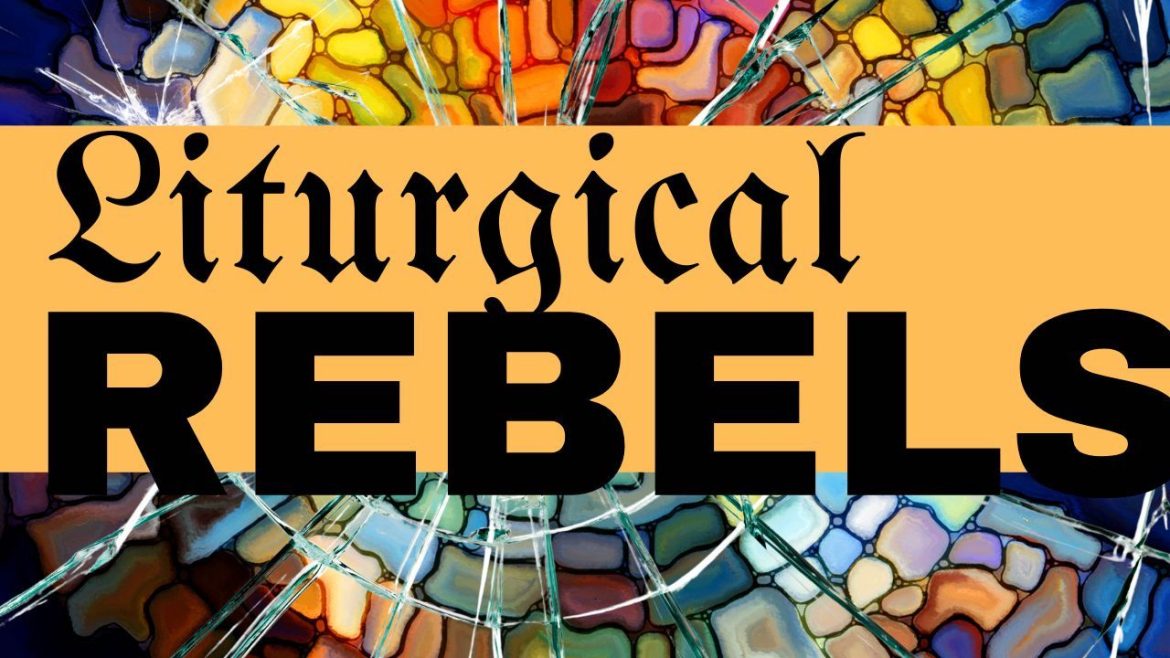How often have you felt restricted to spiritual practices that often seem outdated and of little relevance in today’s world? Are you discouraged to express your own creative talents and develop spiritual practices that are uniquely you? The Liturgical Rebels podcast is for people like you who want to reimagine and reconstruct their faith and spiritual practices.
The Liturgical Rebels Podcast empowers followers of Jesus to creatively reconstruct their faith and spiritual practices. Through conversation with groundbreaking practitioners from around the world who think creatively about new approaches to spirituality, we will emphasize the sacredness of all things and uncover ways in which God speaks to us through nature and creativity, through restorative justice and environmental concern, and through the mundane and ordinary acts of daily life. This podcast is for those who don’t want to just deconstruct, but also to reconstruct faith and spiritual practices; those who want to reshape belief and practice to journey closer to God and the wholeness, peace, justice and flourishing God intends not just for us as individuals but for the earth and all its inhabitants.
We recommend that you sign up to follow Liturgical Rebels wherever you like to get your podcasts. Facebook and social media outlets have not been reliable access providers.
Season Two 2025 Episodes
Episode 33 – Greening Faith at Circlewood with James Amadon
In this conversation, Christine Sine and her husband, Tom Sine, interview James Amadon about the evolution of Circlewood, an ecological ministry on Camano Island, and the journey that led James to take on leadership. They explore the integration of ecology and faith, the history of the land, and the vision for future development, including educational programs and community partnerships. The dialogue emphasizes the importance of hope and the need for new paradigms in pastoral leadership to address ecological challenges.
Episode 32 – Exploring Contemplation as Mission with Ian Mobsby
In this conversation, Ian Mobsby shares his transformative journey from a liberal atheist background to embracing the Christian faith. He discusses his involvement in alternative worship and missional communities, emphasizing the importance of building relationships and fostering spiritual journeys. The conversation delves into the rise of contemplative spirituality, highlighting its appeal to both churchgoers and those outside the faith. Ian presents a contemplative approach to mission, focusing on God’s work of restoration rather than human manipulation. The cyclical nature of spiritual growth and the transformative power of the contemplative tradition in Christianity is explored. They delve into the concept of being ‘spiritual but not religious’ and the need for a shift from traditional hierarchical models of church leadership to a more community-oriented approach.
Episode 31 – Cosmic Christ, Concrete Jesus with Kevin Sweeney
In this episode of the Liturgical Rebels podcast, Kevin Sweeney shares his transformative journey from a conservative Christian background to a more progressive and radical perspective. He discusses the significance of the Black prophetic tradition in shaping his faith and the importance of understanding the Cosmic Christ as a universal force. The conversation also delves into the role of the Concrete Jesus in calling believers to action and the limitations of traditional creeds in addressing love, justice, and liberation. In this conversation, Christine Sine and Kevin explore the significance of embodiment in faith, the limitations of creeds, and the transformative power of mysticism. They discuss how the teachings of the mystics can guide individuals towards a more experiential understanding of God. The conversation emphasizes the importance of love, community, and personal transformation in the journey of faith.

